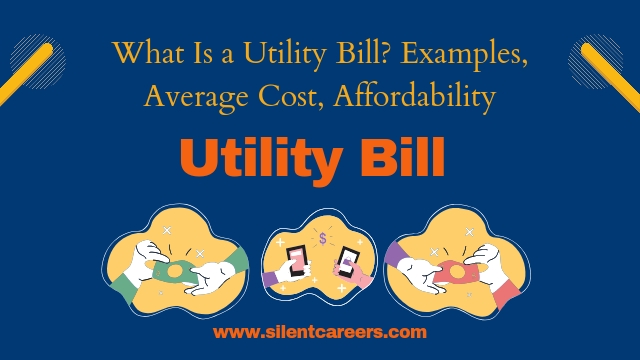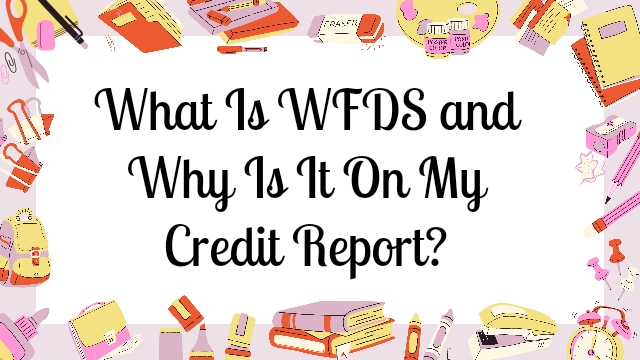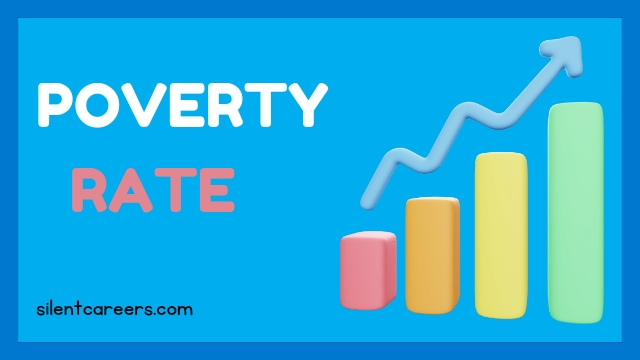
Credit score lease car: A high credit score typically ensures favorable car lease terms, including lower interest rates and smaller down payments. Conversely, a low credit score may lead to higher costs and stricter conditions.

What credit score is needed to lease a car?
To lease a car, the required credit score typically falls within the following ranges:
- Excellent Credit (720 and above):
- Most favorable terms, including the lowest interest rates (or money factors), minimal down payment, and lower monthly payments.
- Easier approval process, with access to premium vehicles and deals.
- Good Credit (660-719):
- You can still qualify for a lease with decent terms, though the interest rates may be slightly higher than those with excellent credit.
- May require a larger down payment or higher monthly payments.
- Fair Credit (600-659):
- Leasing is possible, but terms are less favorable, with higher interest rates and potentially larger down payments.
- You may have fewer vehicle options, and approval is not guaranteed.
- Poor Credit (below 600):
- It can be challenging to lease a car with poor credit. If approved, expect very high interest rates and significant down payment requirements.
- You may need a co-signer or have to explore special leasing programs designed for individuals with lower credit scores.
General Guideline:
- Minimum Credit Score: Generally, a score of 620-660 is the minimum required for leasing a car, but the specific score needed can vary depending on the dealership or leasing company.
It’s always a good idea to check your credit score before applying and consider improving it if it’s on the lower end to secure better lease terms.
What is a good credit score to lease a car?
A good credit score to lease a car is typically considered to be 700 or above. Here’s why:
- 700-749 (Good Credit):
- Approval Likelihood: High likelihood of approval for a car lease.
- Interest Rates: Competitive interest rates, though slightly higher than those with excellent credit.
- Down Payment: May require a standard down payment, but often not excessive.
- Monthly Payments: Reasonable and manageable monthly payments.
- 750 and Above (Excellent Credit):
- Approval Likelihood: Almost guaranteed approval with the best lease terms.
- Interest Rates: Lowest possible interest rates (money factors), leading to lower overall cost.
- Down Payment: May qualify for little to no down payment.
- Monthly Payments: Lower monthly payments due to better terms.
A score of 700 or higher is generally considered good for leasing a car, offering a balance between favorable terms and ease of approval. If your score is above 750, you’ll likely receive the best possible lease terms.
Can you lease a car with a low / bad credit score?
Yes, you can lease a car with a low or bad credit score, but it may come with certain challenges. Here’s what you need to know:
1. Higher Interest Rates:
- Leasing a car with a low credit score often results in higher interest rates, leading to more expensive monthly payments.
2. Larger Down Payment:
- You may be required to make a larger down payment to reduce the lender’s risk.
3. Limited Vehicle Options:
- Some dealerships may limit the vehicles available for lease to those with lower credit scores, potentially excluding luxury models.
4. Co-Signer Option:
- Having a co-signer with good credit can help you secure a lease with better terms.
5. Shorter Lease Terms:
- Lenders may offer shorter lease terms, which can result in higher monthly payments but a shorter overall commitment.
6. Specialized Lenders:
- Some credit unions or lenders specialize in working with individuals with low credit scores, offering more flexible terms.
7. Subprime Leasing:
- Some dealerships specialize in subprime leasing, which is designed for those with poor credit but usually comes with higher costs.
8. Improve Your Credit:
- If possible, try to improve your credit score before leasing. Paying down debt, correcting errors on your credit report, and making timely payments can help.
Leasing a car with bad credit is possible, but it may involve more costs and restrictions. Shopping around and comparing offers from different dealerships can help you find the best deal.
Read more: What Credit Score Is Needed to Buy a Car?
What to know when leasing a car with bad credit
Leasing a car with bad credit can be a viable option, but it requires careful consideration and preparation. Here are the key things you should know:
1. Understand Your Credit Score:
- Know Your Credit Score: Before you begin the leasing process, check your credit score to understand where you stand. A score below 620 is generally considered subprime, which can make leasing more challenging.
2. Prepare for Higher Costs:
- Higher Interest Rates: Expect to pay higher interest rates, which will increase your monthly payments.
- Larger Down Payment: Some lenders may require a larger down payment to offset the risk associated with a low credit score.
3. Shop Around:
- Compare Offers: Not all lenders treat bad credit equally. Some may offer better terms than others, so it’s important to shop around and compare different dealerships and financial institutions.
- Consider Specialized Lenders: Look for lenders who specialize in working with individuals who have bad credit. They may offer more flexible terms.
4. Be Realistic About Your Options:
- Vehicle Selection: You may have limited options in terms of the vehicles you can lease. Dealerships might steer you towards more affordable models to minimize their risk.
- Lease Terms: Be prepared for shorter lease terms, which can result in higher monthly payments but may help you qualify for a lease.
5. Consider a Co-Signer:
- Co-Signer Benefits: If you have someone with good credit willing to co-sign the lease, it can significantly improve your chances of approval and help you secure better terms.
6. Know the Fees:
- Look Out for Hidden Fees: With bad credit, you might face additional fees, such as higher acquisition fees or early termination penalties. Make sure you understand all the costs involved before signing the lease.
7. Check Your Lease Agreement Carefully:
- Understand the Terms: Read the lease agreement carefully to understand all the terms and conditions, including mileage limits, maintenance responsibilities, and what happens if you need to end the lease early.
8. Work on Improving Your Credit:
- Improve Credit Before Leasing: If possible, take some time to improve your credit score before leasing. Paying down existing debt, correcting errors on your credit report, and making timely payments can improve your credit score, potentially leading to better lease terms.
- Lease Payments and Credit: Making on-time lease payments can help improve your credit score over time, making it easier to lease or finance a car in the future.
9. Consider Alternatives:
- Financing vs. Leasing: In some cases, financing a used car might be a better option than leasing a new one. Used car loans might have more flexible terms for those with bad credit.
- Lease Takeover: Consider taking over someone else’s lease. This can sometimes be easier to qualify for and may offer more favorable terms.
10. Plan for the End of the Lease:
- Lease-End Options: Understand your options at the end of the lease. With bad credit, leasing another vehicle may again be challenging, so plan for how you will handle transportation needs once the lease is up.
Leasing a car with bad credit requires extra diligence to avoid unfavorable terms. By being informed and prepared, you can find a lease that fits your needs while working to improve your credit for the future.
Does leasing a car affect your credit score?
Yes, leasing a car can affect your credit score, both positively and negatively. Here’s how:
Positive Impacts on Your Credit Score:
- Establishing Credit History:
- If you have a limited or no credit history, leasing a car can help you build credit. The lease agreement is reported to the credit bureaus, which helps establish a track record of borrowing and repayment.
- On-Time Payments:
- Making all your lease payments on time can positively impact your credit score. Consistent, timely payments show lenders that you are a responsible borrower, which can improve your score over time.
- Credit Mix:
- Having a mix of different types of credit, such as installment loans (like a car lease) and revolving credit (like credit cards), can be beneficial for your credit score. A lease adds diversity to your credit profile.
Negative Impacts on Your Credit Score:
- Hard Inquiry:
- When you apply for a car lease, the lender will perform a hard inquiry on your credit report. A hard inquiry can temporarily lower your credit score by a few points, but the impact is usually minimal and short-lived.
- High Debt-to-Income Ratio:
- A car lease adds to your total debt, which can increase your debt-to-income ratio. If the lease payment is high relative to your income, it might negatively affect your credit score.
- Missed or Late Payments:
- Missing or making late payments on your lease can significantly harm your credit score. Late payments are reported to the credit bureaus and can stay on your credit report for up to seven years.
- Default or Repossession:
- If you fail to make your lease payments, the car could be repossessed, which would severely damage your credit score. A repossession remains on your credit report for seven years and can make it difficult to obtain future credit.
- High Credit Utilization:
- If the lease is reported as an open line of credit with a high balance, it could affect your credit utilization ratio, which is the amount of credit you’re using compared to your total available credit. High credit utilization can lower your credit score.
Neutral or Indirect Effects:
- Lease-End Process:
- Returning the car at the end of the lease or buying it out generally has no direct impact on your credit score, as long as all payments were made on time.
- Leasing Another Car:
- If you lease another car immediately after your current lease ends, the new inquiry and new lease might have a slight impact on your credit score, but this is usually manageable if you maintain good credit habits.
Key Takeaways:
- Timely Payments: Ensure that you make all lease payments on time to positively impact your credit score.
- Monitor Your Credit: Regularly check your credit report to ensure that your lease payments are being reported accurately.
- Manage Debt Wisely: Consider your overall financial situation before leasing to avoid negatively impacting your debt-to-income ratio and credit score.
Leasing a car can be a responsible way to build or maintain your credit if managed properly.
Alternatives to leasing a car
If leasing a car isn’t the right option for you, there are several alternatives to consider. Each option has its own benefits and drawbacks depending on your financial situation, driving habits, and long-term needs. Here are some common alternatives:
1. Buying a New Car:
- Pros:
- Full ownership of the vehicle with no mileage restrictions.
- Can be more cost-effective in the long term if you plan to keep the car for several years.
- You can customize or modify the car as you like.
- Eventually, you won’t have any monthly payments once the loan is paid off.
- Cons:
- Higher monthly payments compared to leasing.
- Depreciation hits harder in the first few years.
- Longer commitment and potentially higher maintenance costs as the car ages.
2. Buying a Used Car:
- Pros:
- Lower purchase price compared to a new car.
- Slower depreciation rate than new cars.
- Potentially lower insurance costs.
- You can still get a reliable vehicle with modern features if you choose a certified pre-owned car.
- Cons:
- Higher maintenance and repair costs, especially as the car ages.
- Limited warranty coverage unless you purchase an extended warranty.
- Potential for hidden issues or a less detailed service history.
3. Financing a Car:
- Pros:
- Allows you to spread the cost of a car over several years, making it more affordable.
- Once the loan is paid off, you own the car outright.
- Builds equity in the vehicle, which can be used as a trade-in for your next car.
- Cons:
- Interest rates can add significantly to the overall cost.
- Monthly payments are generally higher than leasing.
- The car’s value depreciates, but you’re still responsible for the full loan amount.
4. Car Subscription Services:
- Pros:
- Offers flexibility, allowing you to switch cars more frequently.
- Includes maintenance, insurance, and registration in the monthly fee.
- Short-term commitment, often month-to-month.
- Cons:
- Higher monthly costs compared to traditional leasing or financing.
- Limited availability depending on your location.
- Potentially fewer vehicle options compared to buying or leasing.
5. Ride-Sharing or Car-Sharing Services:
- Pros:
- Ideal for those who don’t drive frequently.
- No long-term commitment or ownership responsibilities.
- No costs for maintenance, insurance, or parking.
- Cons:
- Costs can add up quickly if you need to drive often.
- Limited availability in some areas.
- You don’t have the convenience of owning a vehicle when you need it.
6. Public Transportation:
- Pros:
- Cost-effective and environmentally friendly.
- No maintenance, insurance, or parking costs.
- Can reduce traffic and parking hassles.
- Cons:
- Limited to areas with good public transportation infrastructure.
- May not be convenient or available for all routes or schedules.
- Potential for longer travel times compared to driving.
7. Car Lease Takeover:
- Pros:
- Allows you to take over someone else’s lease, often at a reduced cost.
- Shorter commitment than starting a new lease.
- Potentially lower upfront costs compared to starting a new lease.
- Cons:
- Limited vehicle options based on what’s available for takeover.
- You inherit the existing lease terms, including mileage limits and wear-and-tear conditions.
- Potential for hidden issues or higher maintenance costs if the previous lessee didn’t take good care of the car.
8. Saving and Paying Cash:
- Pros:
- No interest payments, making it the most cost-effective option.
- Full ownership from day one with no monthly payments.
- Greater flexibility in choosing a vehicle and negotiating price.
- Cons:
- Requires discipline and time to save the necessary funds.
- Limits your vehicle options based on the amount you’ve saved.
- Ties up a significant amount of cash that could be used for other investments.
9. Using a Bicycle or Walking:
- Pros:
- Free or very low cost, depending on your initial investment in a bike.
- Healthy and environmentally friendly.
- No costs for fuel, maintenance, insurance, or parking.
- Cons:
- Limited to shorter distances and good weather conditions.
- May not be practical for everyone depending on location and lifestyle.
- Potential safety concerns, especially in areas without good cycling infrastructure.
Choosing the Right Option:
Your choice between these alternatives depends on your financial situation, driving habits, and long-term goals. If you value ownership and long-term savings, buying a new or used car might be the best option. If flexibility and lower upfront costs are more important, then leasing, subscribing, or even car-sharing might be more suitable.
How to check your credit score for free
Checking your credit score for free is easy and can be done through various methods. Here’s how you can do it:
1. AnnualCreditReport.com:
- What It Offers: This is the only official site authorized by the U.S. government where you can get a free copy of your credit report from the three major credit bureaus—Equifax, Experian, and TransUnion—once a year. Due to the COVID-19 pandemic, the site has been offering free weekly credit reports through the end of 2023.
- How to Access:
- Visit AnnualCreditReport.com.
- Follow the prompts to request your credit reports from one, two, or all three bureaus.
- Note: While this service provides your full credit report, it does not include your credit score. However, your report can give you insight into what factors are affecting your score.
2. Credit Card Providers:
- What It Offers: Many credit card companies offer free access to your credit score as a benefit. This service is often available through their online account portals or mobile apps.
- How to Access:
- Log in to your credit card account online or through the app.
- Look for a section dedicated to your credit score. This might be labeled as “FICO Score,” “Credit Score,” or something similar.
- Examples: Discover offers FICO scores for free through its “Credit Scorecard” service, even if you’re not a customer. Capital One provides a similar service through “CreditWise.”
3. Credit Monitoring Services:
- What It Offers: Various websites and apps provide free credit scores along with credit monitoring tools. These platforms typically provide your VantageScore, which is slightly different from a FICO score but still widely used.
- Popular Options:
- Credit Karma: Offers free access to your credit scores from Equifax and TransUnion.
- Credit Sesame: Provides a free credit score and credit report summary, along with personalized financial advice.
- Experian: Offers a free FICO score, plus access to your Experian credit report.
- How to Access:
- Sign up for an account on one of these platforms.
- Verify your identity and gain access to your credit score and related tools.
4. Banks and Credit Unions:
- What It Offers: Some banks and credit unions offer free access to your credit score as part of their customer benefits.
- How to Access:
- Check with your bank or credit union to see if they offer this service.
- Log in to your online banking account or mobile app to view your score.
5. Personal Finance Apps:
- What It Offers: Some personal finance apps offer free credit score monitoring as part of their service.
- Popular Options:
- Mint: Offers free access to your credit score along with budgeting and financial tracking tools.
- How to Access:
- Download the app, sign up, and link your accounts.
- Navigate to the credit score section within the app.
Things to Keep in Mind:
- Different Scoring Models: Your score might vary slightly depending on whether it’s a FICO score or VantageScore, and which credit bureau’s data is used.
- No Impact on Your Credit: Checking your own credit score through these methods does not affect your credit score, as it is considered a “soft inquiry.”
By using these resources, you can stay informed about your credit score without incurring any costs, which is crucial for maintaining good financial health.
Ways to help improve your credit scores
Improving your credit score can be a gradual process, but several effective strategies can help boost your score over time. Here are some actionable ways to improve your credit score:
1. Pay Your Bills on Time:
- Why It Matters: Timely payments are one of the most significant factors in your credit score. Late payments can have a substantial negative impact.
- How to Do It: Set up reminders, automate payments, or use budgeting tools to ensure you never miss a due date.
2. Reduce Credit Card Balances:
- Why It Matters: High credit card balances relative to your credit limit can negatively impact your credit score. This is known as your credit utilization ratio.
- How to Do It: Aim to keep your credit utilization below 30% of your credit limit. Paying off high balances or increasing your credit limit can help lower this ratio.
3. Maintain a Low Credit Utilization Ratio:
- Why It Matters: A lower credit utilization ratio (the percentage of your credit limit that you’re using) can positively affect your credit score.
- How to Do It: Pay off your balances regularly and avoid using more than 30% of your available credit.
4. Avoid Opening Too Many New Accounts at Once:
- Why It Matters: Each new credit application can result in a hard inquiry, which can temporarily lower your credit score.
- How to Do It: Only apply for new credit when necessary and consider your credit needs before applying.
5. Keep Old Accounts Open:
- Why It Matters: The length of your credit history affects your credit score. Older accounts contribute to a longer credit history, which can be beneficial.
- How to Do It: Keep old credit accounts open even if you’re not using them regularly. Closing them can reduce the average age of your accounts.
6. Diversify Your Credit Mix:
- Why It Matters: A mix of credit types (e.g., credit cards, installment loans) can positively impact your credit score.
- How to Do It: If you only have one type of credit, consider adding another type, such as an installment loan or a different credit card, if it makes sense for your financial situation.
7. Regularly Check Your Credit Report for Errors:
- Why It Matters: Errors on your credit report can negatively affect your credit score.
- How to Do It: Obtain a free credit report from AnnualCreditReport.com and review it for inaccuracies. Dispute any errors you find with the credit bureaus.
8. Establish a Good Credit History:
- Why It Matters: A long, positive credit history can help improve your credit score.
- How to Do It: Use credit responsibly over time, making payments on time and managing debt effectively.
9. Become an Authorized User:
- Why It Matters: Being added as an authorized user on a responsible person’s credit card can help improve your credit score if they have a positive credit history.
- How to Do It: Ask a family member or friend with good credit if they’d be willing to add you as an authorized user on their account.
10. Use a Secured Credit Card:
- Why It Matters: A secured credit card can help you build or rebuild your credit if used responsibly.
- How to Do It: Make a deposit as collateral, use the card responsibly, and pay off the balance in full each month.
11. Consider Credit Counseling or a Credit Repair Service:
- Why It Matters: Professional help can assist you in developing a plan to improve your credit score.
- How to Do It: Look for reputable credit counseling agencies or credit repair services. Be cautious of scams and ensure the service is legitimate.
12. Set Up Automatic Payments:
- Why It Matters: Automatic payments can help ensure that you never miss a due date, which is crucial for maintaining a positive credit history.
- How to Do It: Set up automatic payments for bills and credit cards through your bank or service provider.
13. Negotiate with Creditors:
- Why It Matters: Sometimes creditors are willing to work with you to improve your payment terms or settle outstanding debts.
- How to Do It: Contact your creditors to discuss potential options for payment plans or settlements.
14. Build an Emergency Fund:
- Why It Matters: Having an emergency fund can help you cover unexpected expenses and avoid missing payments due to financial hardships.
- How to Do It: Save a portion of your income regularly to build a fund that covers several months’ worth of expenses.
By implementing these strategies, you can work towards improving your credit score and enhancing your overall financial health.
How Your Credit Score Affects Car Leasing
Your credit score plays a crucial role in the car leasing process. Here’s how it affects various aspects of leasing a car:
1. Approval Chances:
- High Credit Score: If you have a high credit score, you’re more likely to be approved for a car lease. Lenders view high credit scores as an indicator of lower risk, making it easier to secure a lease with favorable terms.
- Low Credit Score: A low credit score may make it more challenging to get approved for a lease. Lenders might see you as a higher risk and could be less willing to offer you a lease or might offer less favorable terms.
2. Lease Terms:
- Interest Rates: A high credit score typically qualifies you for lower interest rates (also known as the money factor in leasing). Lower interest rates mean lower monthly payments.
- Higher Rates for Low Credit Scores: With a lower credit score, you may face higher interest rates, leading to higher monthly lease payments. This compensates the lender for the increased risk.
3. Down Payment:
- Low Credit Score Impact: If you have a low credit score, you might be required to make a larger down payment to reduce the lender’s risk. This upfront cost helps mitigate the perceived risk associated with your credit profile.
4. Lease Approval Conditions:
- Security Deposits: Lenders might require a higher security deposit from individuals with low credit scores. This deposit acts as a safeguard against potential non-payment.
- Co-Signers: If your credit score is low, you may be asked to provide a co-signer with a better credit history. A co-signer can improve your chances of lease approval and potentially help secure better lease terms.
5. Vehicle Selection:
- Luxury vs. Standard Vehicles: With a lower credit score, you might be limited to leasing less expensive or standard vehicles. Luxury or high-end models might be out of reach due to the higher risk associated with low credit scores.
6. Lease Duration:
- Shorter Lease Terms: Lenders might offer shorter lease terms to individuals with low credit scores to reduce their risk. Shorter terms often come with higher monthly payments but allow the lender to assess your payment behavior more frequently.
7. Additional Costs and Fees:
- Higher Fees: Individuals with low credit scores may face additional fees, such as higher acquisition fees or early termination fees. These fees compensate for the increased risk associated with leasing to someone with a lower credit score.
8. Impact on Future Leasing or Financing:
- Building Credit Through Leasing: Successfully making timely payments on a car lease can positively impact your credit score, potentially improving your chances of securing better lease terms or financing in the future.
- Negative Impact of Missed Payments: Conversely, missed or late payments on a lease can damage your credit score, making it more difficult to lease or finance a car in the future.
Tips for Improving Your Chances:
- Check Your Credit Report: Review your credit report for accuracy and address any errors before applying for a lease.
- Improve Your Credit Score: Work on improving your credit score by paying down debt, making payments on time, and reducing your credit utilization ratio.
- Consider Alternatives: If leasing with your current credit score is challenging, consider alternatives like buying a used car, using a car-sharing service, or financing a car with better terms.
By understanding how your credit score affects car leasing, you can take steps to improve your credit and increase your chances of securing a favorable lease agreement.
Pros and cons of leasing a car
Leasing a car can be a great option for many people, but it comes with its own set of pros and cons. Here’s a detailed look at both:
Pros of Leasing a Car:
- Lower Monthly Payments:
- Pros: Lease payments are typically lower than loan payments for the same vehicle. This can make driving a new or higher-end vehicle more affordable.
- Newer Vehicles:
- Pros: Leasing allows you to drive a new car every few years, keeping you up-to-date with the latest models and technology.
- Less Maintenance:
- Pros: New cars are less likely to require significant repairs, and lease terms often coincide with the manufacturer’s warranty, covering most repair costs.
- No Resale Worries:
- Pros: At the end of the lease, you can simply return the car and walk away, avoiding concerns about selling or trading in the vehicle.
- Lower Repair Costs:
- Pros: Leased vehicles are usually under warranty for the duration of the lease, which can reduce repair costs. Most leases include basic maintenance packages.
- Tax Benefits:
- Pros: In some cases, leasing can offer tax advantages, especially for business owners who can deduct lease payments as a business expense.
- Flexibility:
- Pros: Leases typically last 2-4 years, which provides flexibility to change vehicles frequently without committing to long-term ownership.
Cons of Leasing a Car:
- Mileage Limits:
- Cons: Leases come with mileage restrictions, usually between 10,000 to 15,000 miles per year. Exceeding these limits can result in costly per-mile penalties.
- No Ownership:
- Cons: At the end of the lease, you don’t own the car. All payments and maintenance costs don’t contribute to vehicle ownership or equity.
- Customization Limits:
- Cons: You typically can’t customize a leased vehicle. Any modifications must be removed before returning the car.
- Wear and Tear Fees:
- Cons: Leased vehicles must be returned in good condition. Excessive wear and tear can lead to additional charges.
- Early Termination Fees:
- Cons: Ending a lease early can be expensive due to penalties and fees, making it less flexible if your situation changes.
- Higher Insurance Costs:
- Cons: Leased vehicles often require higher levels of insurance coverage, which can increase your overall costs.
- Credit Requirements:
- Cons: Leasing generally requires a good credit score. Those with poor credit may face higher interest rates or may not qualify for a lease at all.
- Long-Term Cost:
- Cons: While lease payments are lower, the long-term cost of leasing can add up if you continually lease vehicles. Over time, the cost of leasing multiple cars might exceed the cost of purchasing one and keeping it for several years.
Conclusion:
Leasing a car can be ideal for those who like driving new vehicles, prefer lower monthly payments, and don’t want to deal with long-term ownership responsibilities. However, it may not be the best choice for those who drive a lot, prefer ownership, or want to make modifications to their vehicle. Understanding these pros and cons can help you determine if leasing aligns with your personal preferences and financial situation.








